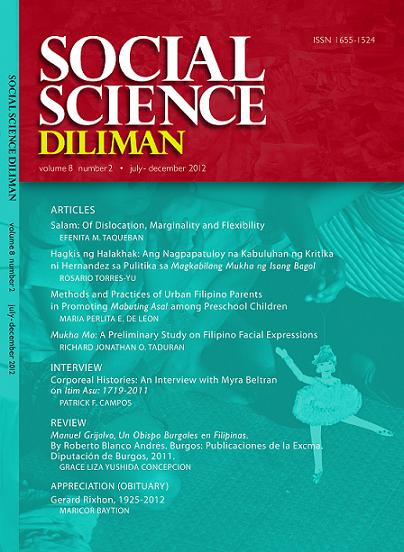Mukha Mo: A Preliminary Study on Filipino Facial Expressions
Abstract
This study tested the universality hypothesis on facial expression judgment by applying cross-cultural agreement tests on Filipinos. The Facial Action Coding System constructed by Ekman and Friesen (1976) was used as basis for creating stimuli photos that 101 college student observers were madeto identify. Contextualization for each emotion was also solicited from subjects to provide qualitative bases for their judgments. The results showed that for five of the six emotions studied, excepting fear, the majority of the observers judged the expressions as predicted. The judgment of happiness supplied the strongest evidence for universality, having the highest correctness rate and inter-observer agreement. There was also high agreement among observersand between Filipinos and other cultures about the most intense and second most intense emotion signaled by each stimulus for these five emotions. Difficulty with the recognition of fear, as well as its common association with the emotion of sadness, has been found. Such findings shall serve as baseline data for the study of facial expressions in the Philippines.
How to Cite
TADURAN, Richard Jonathan O..
Mukha Mo: A Preliminary Study on Filipino Facial Expressions.
Social Science Diliman: A Philippine Journal of Society and Change, [S.l.], v. 8, n. 2, mar. 2013.
ISSN 2012-0796.
Available at: <https://journals.upd.edu.ph/index.php/socialsciencediliman/article/view/3605>. Date accessed: 02 sep. 2025.
Issue
Section
Articles
Keywords
facial expressions, kinesics, non-verbal communication, evolution, emotions


